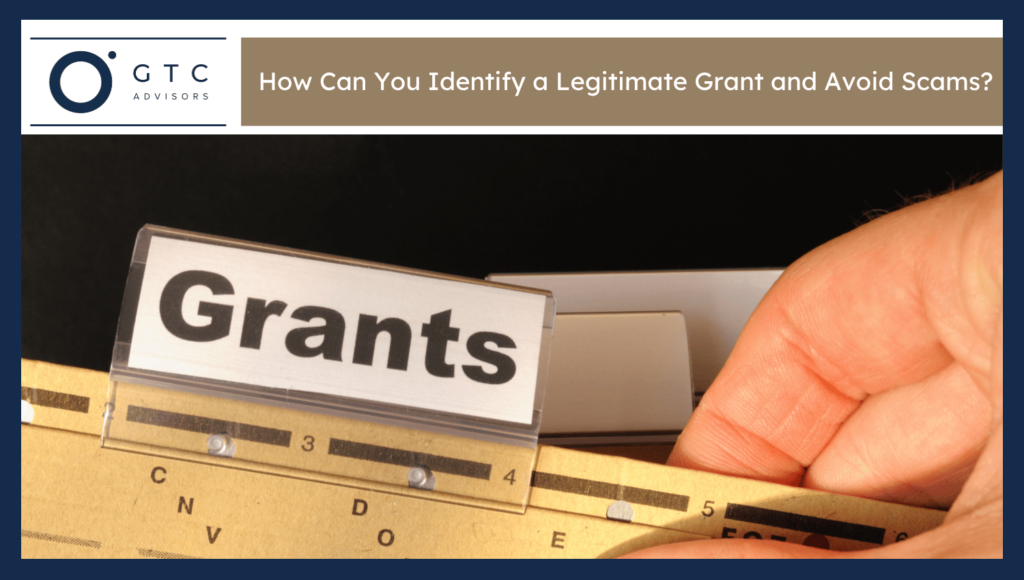A legitimate grant follows a documented process to fund applicants. Government organizations and well-known corporations offer legit grants. They maintain transparency in application forms and do not ask for personal information. Scam grants set a specific upfront payment to receive funds. They trick people with fake websites to collect their bank details. Fake grantmakers create urgency and often make grammar mistakes. They collect money via unusual methods like gift cards and cash reload cards. Scam funders guarantee the funding to the applicants. Legitimate funding is a lengthy process that requires documentation and compliance, though no one can offer guarantees. Use professional communication channels (email, websites) for queries. Make sure to check the scam agencies in the government databases for the registry.
Where to Verify the Legitimacy of a Grant
Here are the five ways to verify the legitimacy of a grant:
- Official Government Portals: Visit the official government portals to check grant details. They are one of the best legitimate sources to seek opportunities and track application status. Grants.gov and USA.gov have the information about all the grant funding agencies.
- Foundation Directories: Look at the Candid (Foundation Directory and GuideStar) and Grantwatch for the private funding organizations. These directories contain information about the funder’s priorities, goals, mission, and values. Filter the grants with advanced filters to find the opportunities related to the project.
- Charity and Nonprofit Registries: Visit the IRS Tax Exempt Organization Search (TEOS) to see if the funding organization is tax exempt. Look for the local charity databases to find the relevant non-profit funding organizations.
- Peer Networks and Industry Groups: Networking is one of the best ways to find legitimate grants. Talk to friends and people in the industry to list the organizations that funded their projects. The National Council of Nonprofits also works best to find the national and international funds.
- Search for Reviews or News: Search the website on Google after getting any message or RFP. Look at the reviews, location, and media coverage of that funding agency. Confirm their activities or any potential scam alerts from testimonials of other organizations.
How to Identify Common Grant Scams
Here are the five ways to identify the common grant scams:
- Requests for Money or Bank Information: Fake gran makers tactic people into sharing their personal bank account details. They try to hack emails, WhatsApp, and banks with fake and phishing links. Do not send any upfront fee to someone who guarantees the grant. The government does not charge any upfront fee on official and legitimate funds.
- Unrealistic Promises: Scammers claim to offer large funding without an applicant’s background check or reviewing the application. Do not get trapped in scams that guarantee funds. Grant money is a competitive process, and it requires a complete background check. This process takes 3 to 9 months.
- Pressure Tactics: Urgency is one of the visible traits of scammers. They try to create a situation of urgency to push applicants to pay the upfront fee or share their bank credentials. People often get tricked when scam funders tell them they are going to lose the funds otherwise. Do not respond to people who put pressure or are in a hurry.
- Vague or Poorly Written Communication: Scam funders often make typo mistakes due to pressure tactics. Do not submit the application when the funder uses suspicious language or makes mistakes in emails.
- No Traceable History: A funding agency without a history is a common sign of a scam. Do a background check and visit the government databases to see if they are authentic before making any move.
How to Protect Yourself When Applying
Here are the five tips to avoid getting scammed:
- Never Pay to Apply: Do not apply to any funding organization or agency that asks for an upfront fee.
- Use Official Communication Channels: Discuss the project details on official communication channels (email) instead of WhatsApp. These details act as evidence when needed in the future.
- Keep Records of Applications: Make sure to save the records and chats with the funder. It is important until the project ends. Written documents are important as evidence instead of digital messages.
- Verify Contact People: Search for the people who communicate or process the grant application. Look at their identities on social media and do a quick background check.
- Report Suspected Scams: Block the people asking for an upfront fee and document everything as evidence. Report to the FTC to end their scamming business.
What are the Tips for Confidently Applying Only to Legitimate Grants
Here are the five tips to apply for only legitimate grants:
- Research Before Applying: Research about the agency, funder, and people in contact before applying for any grants. Use government databases, networking channels, or foundation directories for quick research.
- Read Reviews and Ask Peers: Read reviews on Google, Reddit, and Quora about the funding organziation. Learn about their experience and note the key details that flag them as a scammer.
- Follow Known Portals: Follow the government portals and turn on email updates in the reevacn projects.
- Start Small: Do not apply for large grants at first. Write the LOI and proposal for small grants to experience. Learn from mistakes and avoid repeating them when writing for large grants.
- Stay Updated on Scam Alerts: Search the latest news about scam agencies and notices from the government to stay updated on scams. Join the communities and groups that share these details.

George C. Tagg, Jr.
George serves as a trusted counsel to business leaders, non-profit executives, and management teams. George is a licensed attorney with a master’s in international affairs and over 20 years’ experience in the U.S. Congress, Department of State, Department of Defense, global public policy, and political campaigns.


